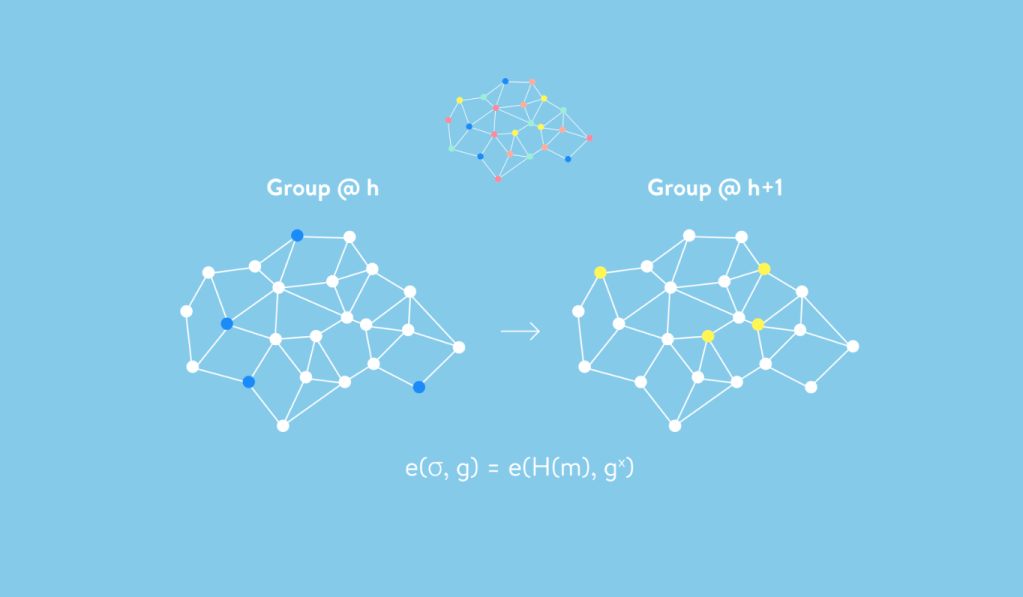Since blockchain technology appeared, there has been a persistent problem in its development: how to make it scale to billions of users. Bitcoin was famously never really designed for this, and today other platforms like Ethereum are also struggling. If you could crack this problem, the thinking goes, you’d end up with the hottest property in blockchain right now.
That, a very healthy dose of ambition, and a bench of strong computer science talent are some of the big reasons why investors are gathering around DFINITY, a startup based out of Zug, Switzerland and Palo Alto that is also a foundation, and has a very lofty goal to build what it calls the “Internet Computer”: a blockchain-based, decentralised and non-proprietary network to run the next generation of mega-applications. DFINITY aims to launch an initial version of its public network — which it has also dubbed “Cloud 3.0” — towards the end of the year.
Today, DFINITY is announcing that it has raised $102 million in funding, in a round jointly led by Andreessen Horowitz (via its crypto fund a16z crypto) and Polychain Capital. Both were previous investors in a $61 million round DFINITY announced earlier this year — which has been a blockbuster for blockchain, with at least $1.3 billion being invested into the technology in the first half of 2018 alone. DFINITY has now raised just over $195 million to date since being founded in 2015.
Other investors in this latest round include SV Angel, Aspect Ventures, Village Global, Multicoin Capital, Scalar Capital, and Amino Capital, KR1, as well as DFINITY community members.
DFINITY’s approach to the scalability problem is to resolve the dilemma between full decentralization (where every miner runs every instruction of every computation) versus delegating the mechanics to nodes or super nodes (so therefore more centralisation). DFINITY says it has tested its network to the point where it can finalize software computations in under 5 seconds, which is extremely fast. Bitcoin by contrast takes 3,600 seconds, and Ethereum 600 seconds.
DFINITY conducted an airdrop in May of 35 million Swiss Francs worth of tokens to DFINITY community members to help them become early users. Now DFINITY has followed the newer approach of raising a private sale for its token, without going to a public sale.
You can also watch a test demo of the network here:
While a lot of blockchain projects are tied up with currency (an area that DFINITY has also developed, as you can see), what’s notable about what this startup is doing is that its wider focus is on building a platform that could be used across a significantly wider set of applications.
The Internet Computer, as described by founder and chief scientist Dominic Williams, “is a public infrastructure that aims to host the world’s next generation of software and services.” The belief is that by making it open source and non-proprietary, it’s significantly more secure and less costly to maintain. DFINITY claims that R&D on such an architecture is 90 percent lower.
“We are excited to back DFINITY’s Internet Computer and their vision to host the world’s next generation of software and services on a public network,” said Chris Dixon, Partner at a16z crypto. “The Internet Computer is on track to become a critical piece of the future technology stack. This is groundbreaking and a real testament to Dominic and the incredible team at DFINITY.”
“Dfinity is exciting to a new decentralised world because it has the ability to solve the big issues of the day, including scaling and network security. It’s perhaps one of the handful of new blockchain platform’s that can achieve this. We were always impressed with Dominic and his conviction of their approach,” added Keld Van Shreven, CEO of KR1.
In addition to Williams, that team is impressive indeed.
It includes Timo Hanke as head of engineering, who is a former mathematics and cryptography professor who created AsicBoost to increase the efficiency of Bitcoin mining; Mahnush Movahedi, who joined as a senior researcher from Yale where she’s worked on “scalable and fault-tolerant distributed algorithms for consensus and secure multi-party computation, secret sharing, and interactive communication over noisy channels”; ex-Googler Ben Lynn, who is the “L” from BLS cryptography, used in Threshold Relay to “generate randomness and achieve security, speed and scale in public networks”; and Adreas Rossberg, another ex-Googler who had co-designed the WebAssembly virtual machine, which is also used at DFINITY.
While Internet networks and the largest players online today are proprietary entities with their own commercial and strategic agendas, the vision behind DFINITY is that it can be used to run “autonomous software” that will run in a more independent way. These will exist as running open source software that updates itself using inbuilt governance that can provide hard guarantees to users in the form of “smart contracts” (computing and other transactions that can be made without third parties). These can cover how data might be used, or provide guarantees to startups wishing to build functionality without the precarious worry of a platform access getting revoked. You can read more about the technology in its white paper.
DFINITY has not disclosed its valuation with this round.































Comment